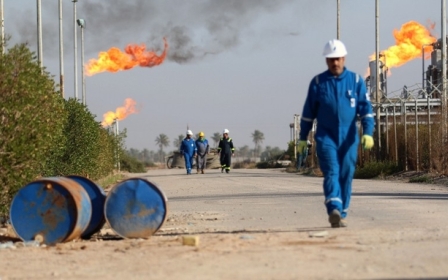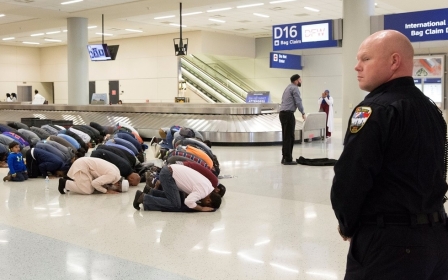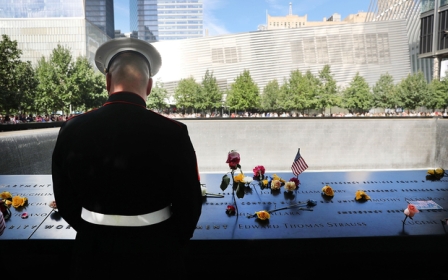Saudis not paying fair share for US defence, Trump says
US President Donald Trump complained on Thursday that US ally Saudi Arabia was not treating the United States fairly and Washington was losing a “tremendous amount of money” defending the kingdom.
In an interview with Reuters, Trump confirmed his administration was in talks about possible visits to Saudi Arabia and Israel in the second half of May. He is due to make his first trip abroad as president for a NATO summit on 25 May in Brussels and could add other stops.
"Frankly, Saudi Arabia has not treated us fairly, because we are losing a tremendous amount of money in defending Saudi Arabia,” he said.
Trump’s criticism of Riyadh, the world’s top oil exporter, was a return to his 2016 election campaign rhetoric when he accused the kingdom of not pulling its weight in paying for the US security umbrella.
"Nobody’s going to mess with Saudi Arabia because we’re watching them," Trump told a campaign rally in Wisconsin a year ago. “They’re not paying us a fair price. We’re losing our shirt.”
Saudi Arabia’s powerful deputy crown prince, Mohammed bin Salman, met with Trump last month in a meeting that was hailed by a senior Saudi adviser as a “historical turning point” in relations.
The talks appeared to signal a meeting of the minds on many issues, including their shared view that Iran posed a regional security threat.
A senior adviser to the Saudi royal called Trump after the visit a “true friend of Muslims who will serve the Muslim World in an unimaginable manner”.
Riyadh and other Gulf allies see in Trump a strong president who will shore up Washington’s role as their main strategic partner and help contain Riyadh's adversary Iran in a region central to US security and energy interests, regional analysts said.
A visit to Israel would reciprocate a White House visit in February by Israeli Prime Minister Benjamin Netanyahu. Palestinian President Mahmoud Abbas is due to meet Trump next Wednesday in Washington.
Trump, who pledged during his election campaign to move the Israeli embassy to Jerusalem, has promised to seek a Middle East peace deal that eluded his predecessors. However, he has offered no new diplomatic prescriptions.
“I want to see peace with Israel and the Palestinians,” he said. “There is no reason there's not peace between Israel and the Palestinians - none whatsoever.”
Trump brushed aside a question of whether he might use a possible trip to Israel to declare US recognition of the entire city of Jerusalem as Israel's capital, a reversal of longstanding US foreign policy likely to draw international condemnation.
"Ask me in a month on that," he said, without elaborating.
If Trump ties an Israel visit to next month's Brussels trip, it would be around the time Israelis are celebrating the 50th anniversary of capturing Arab East Jerusalem in the 1967 Middle East war.
Successive US administrations as well as the international community have not recognised Israel's annexation of the eastern part of the city, and the future status of Jerusalem remains one of the thorniest issues in the Israeli-Palestinian dispute.
Israel claims all of Jerusalem, which contains sites sacred to the Jewish, Muslim and Christian faiths, as its capital. Palestinians want East Jerusalem as the capital of a future state of their own.
In December, the UN Security Council passed a resolution condemning illegal Israeli settlements in the West Bank and East Jerusalem. The then Obama administration abstained during the vote, enabling it to pass.
Middle East Eye propose une couverture et une analyse indépendantes et incomparables du Moyen-Orient, de l’Afrique du Nord et d’autres régions du monde. Pour en savoir plus sur la reprise de ce contenu et les frais qui s’appliquent, veuillez remplir ce formulaire [en anglais]. Pour en savoir plus sur MEE, cliquez ici [en anglais].




